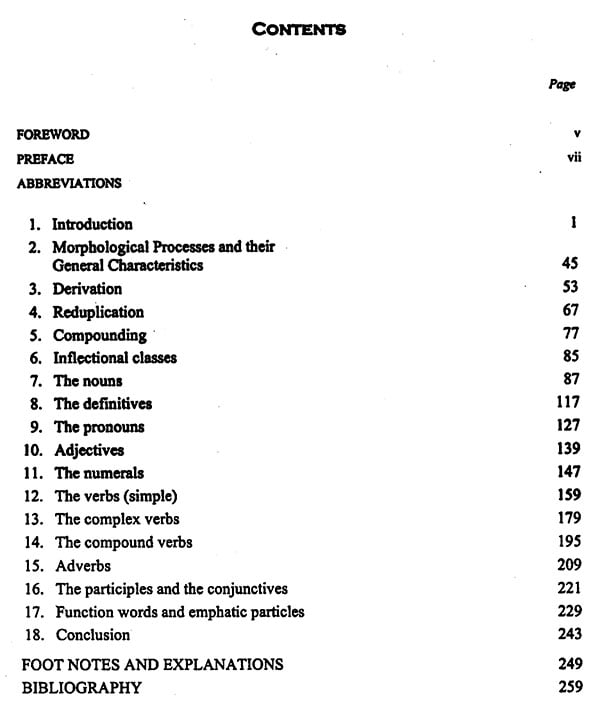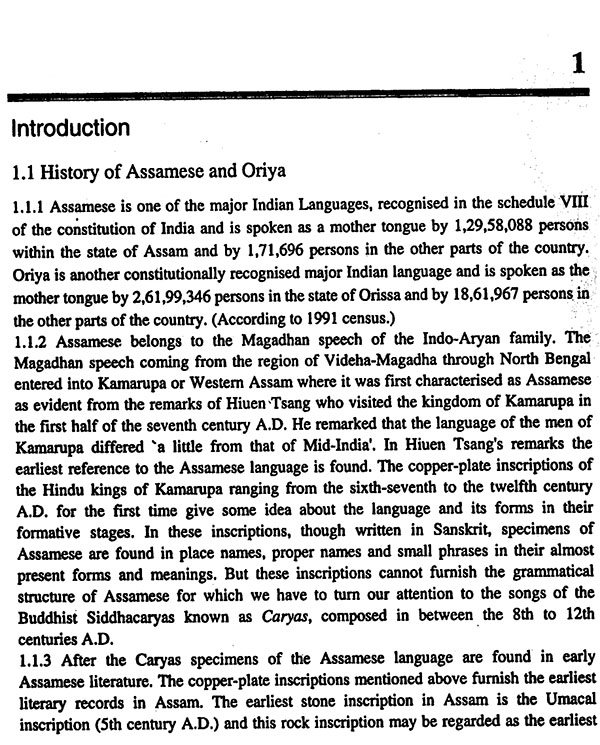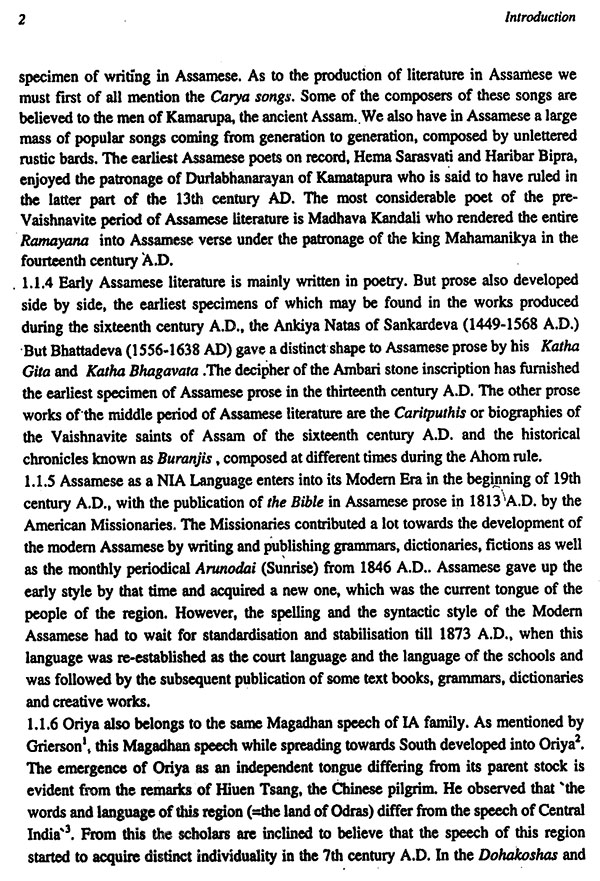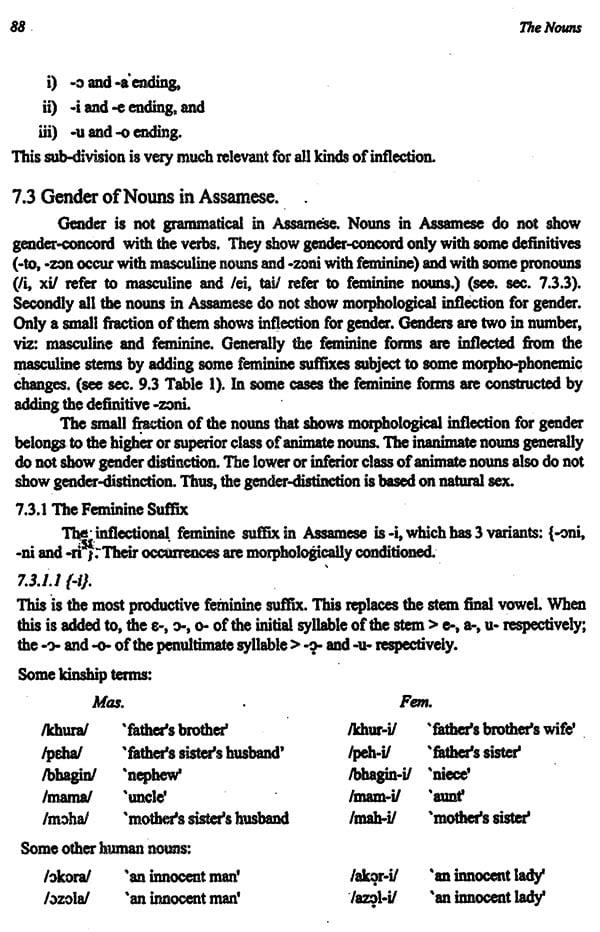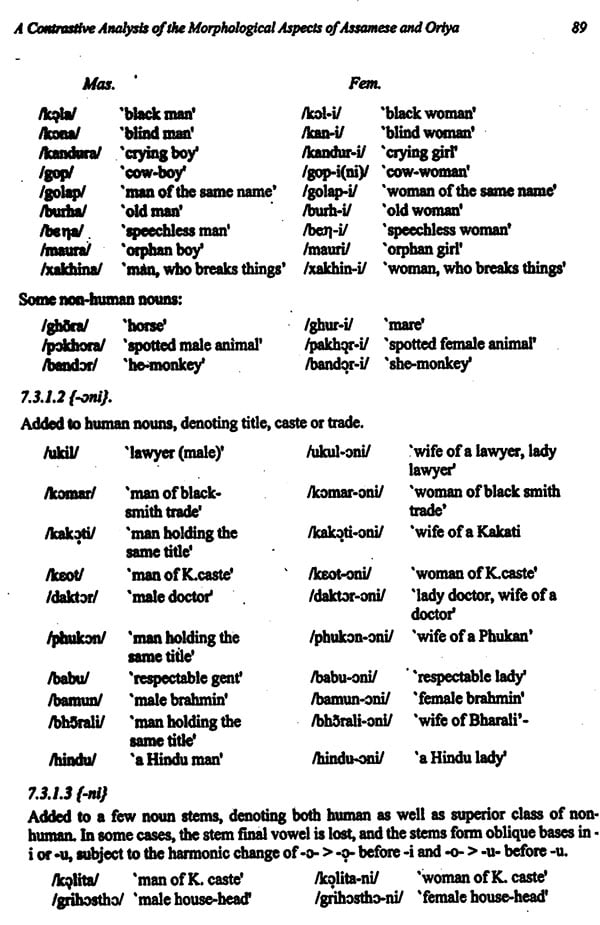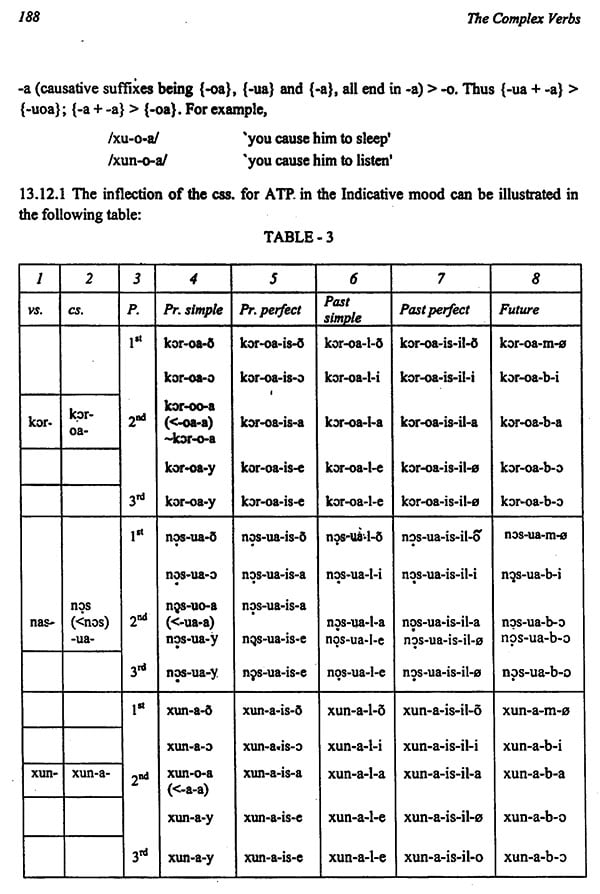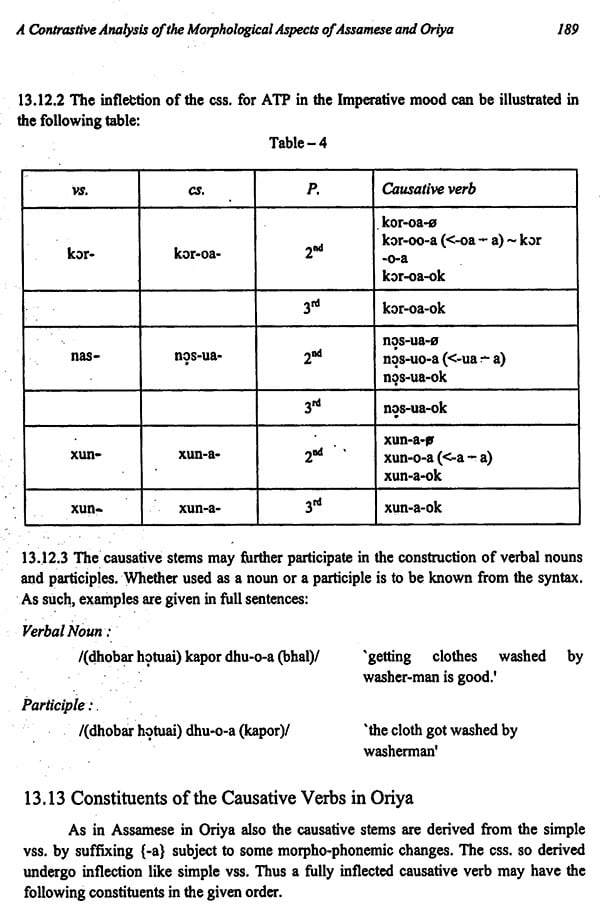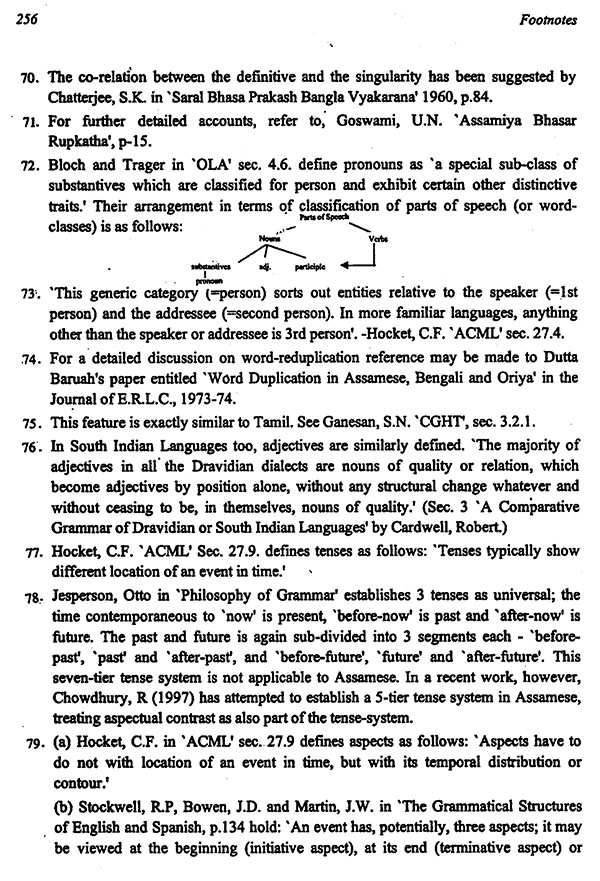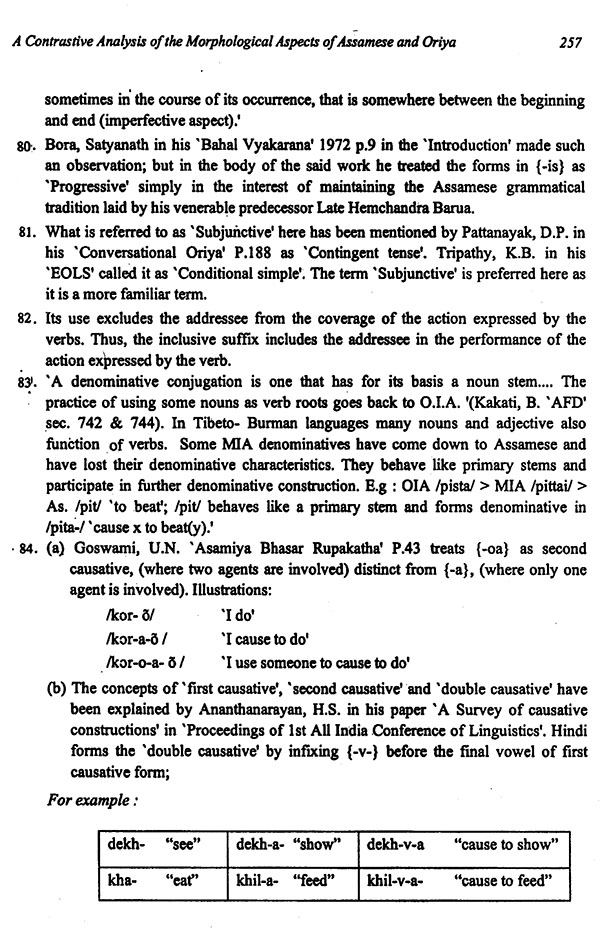
A Contrastive Analysis of the Morphological Aspects of Assamese and Oriya
Book Specification
| Item Code: | NAX315 |
| Author: | P.N. Dutta Baruah |
| Publisher: | Central Institute Of Indian Languages, Mysore |
| Language: | English |
| Edition: | 2007 |
| ISBN: | 8173421382 |
| Pages: | 264 |
| Cover: | HARDCOVER |
| Other Details | 10.00 X 7.00 inch |
| Weight | 570 gm |
Book Description
Although in the well-known works like Origin and Development of Bengali Language by Dr. S.K. Chatterjee, Assamese Its formation and Development by Dr. B.K. Kakati and Evolution Oriya Language and Script by Dr. K. B. Tripathy casual comparison of some morphological aspects of Assamese and Oriya have been attempted, no full-length comparative analysis of the morphological aspects of the two languages have so far been done. As the title itself suggests, A Controlled Historical Reconstruction of Oriya, Assamese, Bengali and Hindi by Dr. D.P. Pattanayak also does not throw much light on the morphological aspects of the two languages.
In the present work, viz: A Contrastive Analysis of the Morphological Aspects of Assamese and Oriya, I have attempted to analyse (descriptively not historically) some of the morphological aspects of both the languages in some detail and to arrive at a conclusion as to what extent one is similar to, and different from, the other at the level of morphology. This contrastive analysis has been carried out with a view to serve pedagogic purpose. In the present century when the learning of an Indian language other than the mother tongue is receiving wide response in the country, research in the area of contrastive analysis of two or more Indian languages has become the need of the day. The present work is expected to fulfill this need and to be a great help to Oriya speakers to learn Assamese and vice versa, especially morphology.
In fact, there was no proper model available for this work. The well-known work like Grammatical Structures of Spanish and English by Stock well etal was quite different in both principle and presentation. As such, it happened to be quite difficult to give a proper shape to this work, which could only be possible because of the painstaking and able guidance of Dr. U.N. Goswami, to whom I shall have to be immensely indebted. Many of my teachers and senior colleagues have been kind enough to offer valuable suggestions at different stages and at different times; my words are inadequate to express my sincerely thanks to them.
The Central Institute of Indian Languages is entrusted with the responsibility of conducting research in the areas of language analysis, language pedagogy, language technology and language use, directed: towards problem solving and national integration. The major domains in which the Institute works are education, administration, documentation and mass communication. The Institute is involved in the description and codification of smaller languages and in developing models, methods, materials and human resources for their use in education. It 1s concerned with the status of major Indian languages and the implementation of policies as regards their use as medium of instruction and administration at all levels. The Institute also helps the Government in language planning and lends its assistance in coordinating the development of Indian languages.
The Central Institute of Indian Languages is also committed to publish theses on Indian Languages, accepted by various Universities. In this series it has already published six theses. The present work "A Contrastive Analysis of the Morphological Aspects of Assamese and Oriya" is the Ph.D. dissertation of P.N. Dutta Baruah which was accepted by the Gauhati University. It has presented the descriptive accounts of the Morphologies of Assamese and Oriya from the view point of modern linguistics and outlined the similarities and dissimilarities between the two languages. There has been a great demand for this book from the University students of Assamese and Oriya, as well as from the trainees of these two languages of our Eastern and North Eastern Regional Language Centres.
It is expected that the publication of this book will fulfill the long-felt need of the student community and will go a long way for promotion and development of the linguistic study of Assamese, a language of North East for which the Govt. has special commitment. The Institute looks forward to the suggestions/views from the readers for incorporating them in the future edition.
